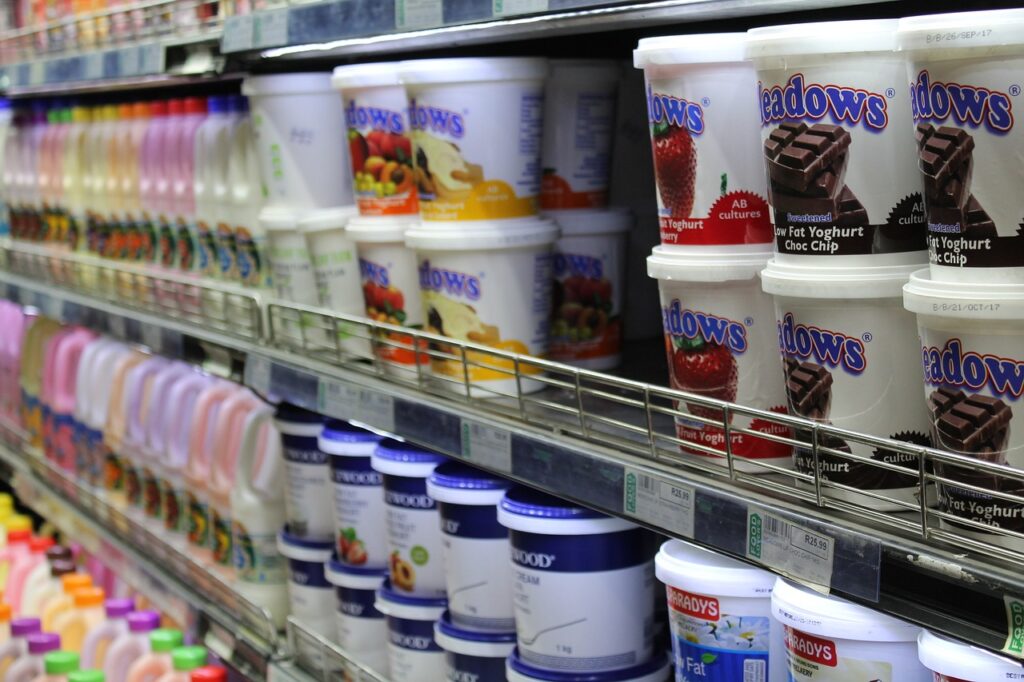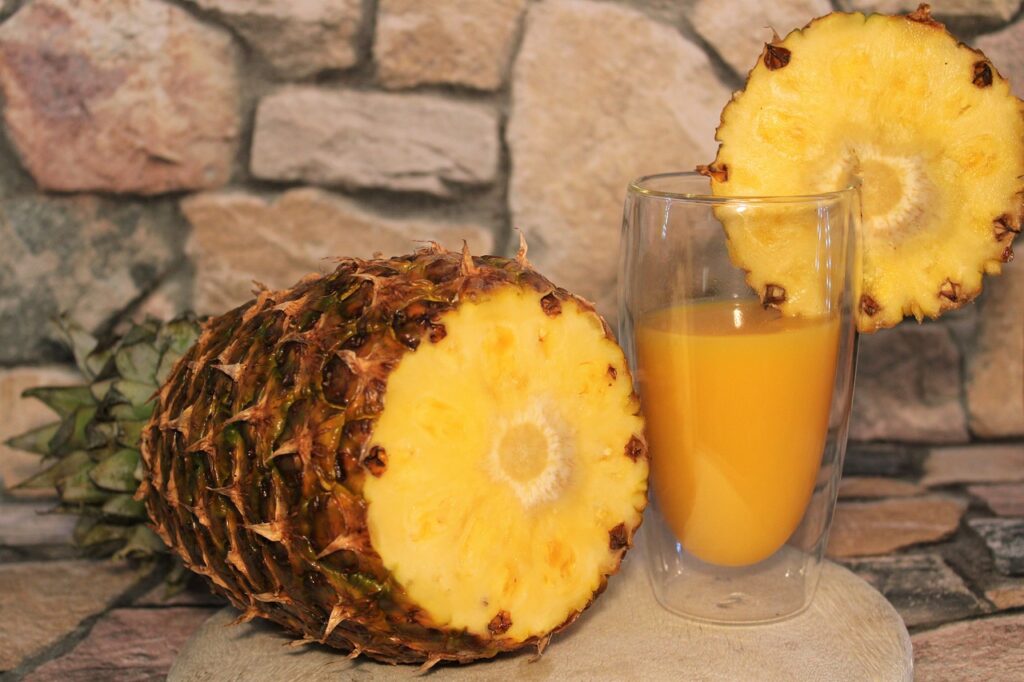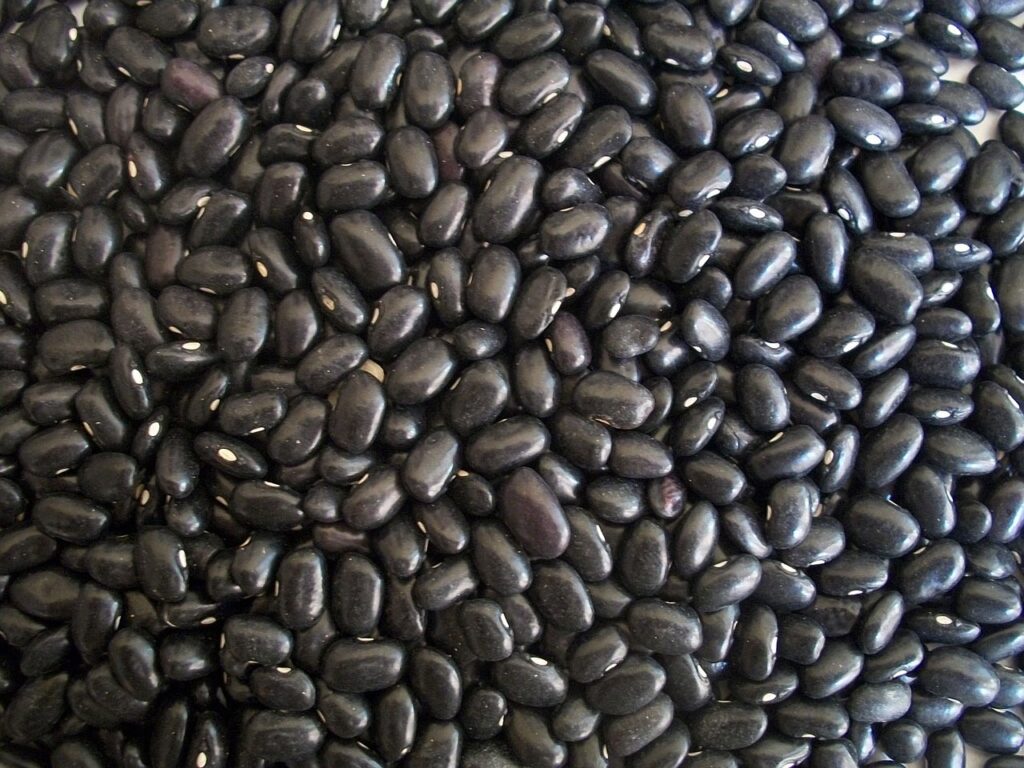Are you looking to adopt a dairy-free keto diet but concerned about meeting your protein needs? Well, you're not alone. Studies have shown that protein plays a critical role in maintaining muscle mass, supporting weight loss, and promoting overall health.
But fear not, because there are plenty of protein-rich foods that are perfect for a dairy-free keto diet. In this discussion, we will explore the top protein sources that will keep you satisfied and on track with your goals.
So, whether you're a seafood lover, a meat enthusiast, or a plant-based eater, there's something for everyone. Get ready to discover the perfect protein options for your dairy-free keto journey.
Seafood Options for Dairy-Free Keto

When following a dairy-free keto diet, incorporating seafood options is a great way to ensure you get the necessary protein while keeping your carb intake low. Seafood such as fish and shellfish aren't only delicious but also low in carbs and high in protein. They're excellent sources of B vitamins, potassium, and selenium, which are essential for maintaining good health.
Fatty fish like salmon and sardines are particularly beneficial for a dairy-free keto diet as they're high in omega-3 fats. These healthy fats have been linked to improved brain health and can help reduce inflammation in the body. Shellfish, although their carb count varies, can still be enjoyed on a keto diet as long as you carefully track your intake.
Trout and tuna are excellent high-protein options for a dairy-free keto diet. A three-ounce serving of trout contains around 20 grams of protein, while tuna provides approximately 17 grams. Incorporating other seafood options such as oysters, shrimp, and sardines into your diet can also provide you with the protein you need while avoiding dairy products.
Meat and Poultry Choices for Dairy-Free Keto
When following a dairy-free keto diet, you have a variety of meat and poultry choices to incorporate into your meals. Beef and pork options, such as steak, ground beef, and pork chops, are rich in protein and low in carbs.
Poultry alternatives like chicken and turkey are lean sources of protein that can be enjoyed without the skin to reduce cholesterol content.
Additionally, seafood choices like shrimp, crab, and lobster provide a delicious and nutritious option for dairy-free keto meals.
Beef and Pork Options
Beef and pork offer delicious and nutrient-rich options for those following a dairy-free keto diet. These protein-rich foods are low in carbs and high in B vitamins, minerals, and high-quality protein. Incorporating beef and pork into your meals can provide essential nutrients and help meet your protein intake on a dairy-free keto diet.
Additionally, both beef and pork can be prepared in various ways, offering versatility and flavor to your dairy-free keto meals. Including beef and pork in your diet can contribute to satiety, support muscle health, and aid in weight loss due to their high protein content.
Poultry Alternatives
Poultry alternatives offer a wide range of meat and poultry choices for those following a dairy-free keto diet. Chicken and turkey are excellent options as they're low in fat and high in protein. Removing the skin from poultry can further reduce cholesterol content and provide lean protein.
Eggs are also a great lactose-free source of protein for a dairy-free keto diet. Additionally, almond milk, cashew milk, and walnut milk are dairy-free alternatives that are rich in protein.
Poultry and eggs can be prepared in various ways, making them versatile protein options for a dairy-free keto meal. Incorporating these protein-rich foods into your diet can provide the necessary grams of protein per body weight while being lower in carbs, which is essential for a keto diet.
Seafood Choices
For a dairy-free keto diet, incorporating seafood into your meals can provide a rich source of protein while being low in carbs. Fish and shellfish are excellent choices as they aren't only high in protein but also packed with essential nutrients like B vitamins, potassium, and selenium.
Fatty fish like salmon and sardines are particularly beneficial due to their high omega-3 fat content, which has been linked to improved brain health. The American Heart Association recommends consuming 8-10 ounces of seafood per week for heart health, making it an ideal choice for a dairy-free keto diet.
Additionally, meat and poultry are suitable options as they're low in carbs, rich in B vitamins and minerals, and provide high-quality protein. Just be mindful of the carb count in shellfish and track your intake accordingly.
Eggs as a Protein Source on a Dairy-Free Keto Diet
Eggs are an excellent protein source for a dairy-free keto diet. With about six grams of protein per egg, they offer a convenient and affordable way to boost your protein intake.
Plus, eggs are versatile and can be incorporated into a variety of keto recipes, making them a nutritious and delicious choice for any meal of the day.
Nutritional Benefits of Eggs
With their high protein content and essential nutrients, eggs are a versatile and lactose-free option for individuals on a dairy-free keto diet.
Eggs provide about 6 grams of protein per egg, making them an excellent source of protein for those following a dairy-free keto diet. They're also packed with essential nutrients like B vitamins, selenium, and choline, which support overall health.
Eggs are a complete protein source, containing all nine essential amino acids necessary for muscle health and recovery. Incorporating eggs into your diet can help decrease hunger, maintain stable blood sugar levels, and support cardiovascular health.
Whether enjoyed scrambled, in omelets, or as an ingredient in dairy-free recipes, eggs offer a wide range of culinary possibilities and nutritional benefits for those on a dairy-free keto diet.
Versatility in Keto Recipes
Incorporating eggs into your dairy-free keto diet not only provides a versatile protein source, but also offers a wide range of culinary possibilities and nutritional benefits.
Eggs are a lactose-free protein option, making them ideal for a dairy-free keto diet. With about six grams of protein per egg, they can easily boost your protein intake.
Here's how eggs can add versatility to your keto recipes:
- Scramble them with vegetables for a quick and protein-packed breakfast.
- Use them to make omelettes filled with your favorite dairy-free ingredients like spinach and mushrooms.
- Make satisfying egg salad wraps using lettuce leaves instead of tortillas.
Eggs aren't only a great source of protein, but they also contain all the essential amino acids your body needs. Plus, they've a minimal carb content, making them a perfect addition to your dairy-free keto recipes.
Nuts and Seeds for Dairy-Free Keto Enthusiasts

Including nuts and seeds in your dairy-free keto diet can provide a protein-rich and satisfying option for your snacks and meals. These protein-rich foods are perfect for dairy-free keto enthusiasts because they're low in carbs and high in healthy fats. Regularly consuming nuts and seeds has been shown to reduce the risk of chronic diseases and promote feelings of fullness due to their high fiber content.
When it comes to choosing nuts and seeds for your dairy-free keto diet, there are several options to consider. Almonds, macadamia nuts, pecans, and walnuts are all low in carbs and make for healthy snack choices. Chia seeds and flaxseeds are also excellent choices as they're high in fiber, healthy fats, and protein.
Incorporating nuts and seeds into your snacks, meals, and salads can provide a substantial protein boost and add a satisfying crunch to your dishes. So, whether you're looking for a quick snack or a way to enhance the protein content of your meals, nuts and seeds are the perfect choice for dairy-free keto enthusiasts.
Plant-Based Protein Alternatives for Dairy-Free Keto
Dairy-free keto enthusiasts can enjoy a variety of plant-based protein alternatives to meet their dietary needs. Here are some options to consider:
- Nuts and Seeds: Nuts and seeds aren't only delicious but also packed with protein. For example, almonds offer about 6 grams of protein per ounce, while pumpkin seeds provide around 8 grams per ounce. These protein-rich foods can be easily incorporated into your diet as snacks or added to salads, smoothies, or keto-friendly desserts.
- Soy Products: Soy products like tofu and tempeh are excellent plant-based protein alternatives. Tofu contains approximately 10 grams of protein per half-cup serving, while tempeh offers around 15 grams per half-cup. These versatile options can be used in stir-fries, salads, or even as burger substitutes.
Incorporating these dairy-free, plant-based protein alternatives into your keto diet can't only help you meet your protein requirements but also provide other health benefits. Research suggests that plant-based diets, when combined with a decrease in dairy products, may decrease the risk of heart disease. Additionally, plant-based protein sources can be rich in essential nutrients like vitamin D, which is especially important for those following a dairy-free diet.
Quinoa: a Protein-Rich Grain for Dairy-Free Keto

To continue your exploration of plant-based protein alternatives for a dairy-free keto diet, let's now focus on quinoa, a protein-rich grain that can be a valuable addition to your meals.
Quinoa is a complete protein source, containing all nine essential amino acids, making it an ideal choice for those following a dairy-free keto lifestyle. This grain is low in net carbs, making it suitable for a ketogenic diet while providing a good amount of protein and fiber.
Quinoa can be used in a variety of dairy-free keto recipes, such as salads, soups, and grain bowls, adding both nutrition and flavor to your meals.
Beans for Dairy-Free Keto Protein
Beans are an excellent choice for dairy-free keto protein. They offer a range of nutritional benefits, including being high in protein and fiber.
With a variety of bean options available, you can easily incorporate them into your meals to boost your protein intake while avoiding dairy.
Nutritional Benefits of Beans
Incorporating beans into your keto meal plan can provide a rich source of plant-based protein, along with essential nutrients such as B vitamins, iron, and potassium. Here are the nutritional benefits of adding beans to your dairy-free keto diet:
- Fiber: Beans are high in fiber, which aids digestion and promotes satiety on a keto diet.
- Low net carbs: Despite being high in fiber, beans are also low in net carbs, making them suitable for keto meal plans.
- Essential nutrients: Beans offer a variety of essential nutrients, including B vitamins, which are important for energy production, iron for oxygen transport, and potassium for proper muscle and nerve function.
Variety of Bean Options
For a diverse range of protein options on a dairy-free keto diet, consider incorporating a variety of beans into your meals.
Black beans, kidney beans, and chickpeas are protein-rich choices that can be used in dairy-free keto recipes. Lentils, soybeans, and edamame are also high-protein bean options suitable for a dairy-free keto diet.
Black soybeans, pinto beans, navy beans, adzuki beans, mung beans, and lima beans are versatile and nutritious sources of protein for your dairy-free keto meals. Incorporating a variety of beans not only provides essential amino acids but also helps meet your protein needs on a dairy-free keto diet.
Beans are extremely low in carbs, containing only trace amounts, and can help you feel full and satisfied. So, make sure to include one cup of beans in your daily meals to enjoy their protein-packed benefits while following a dairy-free keto diet.
Soy Products for Dairy-Free Keto Protein

To incorporate dairy-free keto protein into your diet, consider incorporating soy products like tempeh, firm tofu, and unsweetened soy milk. These soy products are complete protein sources, meaning they provide all the essential amino acids your body needs. They're also high in protein, making them suitable for a dairy-free keto diet.
Here are some reasons why soy products are a great choice for those following a dairy-free keto diet:
- Variety and essential amino acids: Incorporating soy products adds variety to your diet and ensures you're getting all the essential amino acids your body needs. This is especially important for individuals on a plant-based keto diet.
- Alternative to dairy: Soy products provide an alternative source of protein for individuals who are lactose intolerant or avoiding dairy. They offer a creamy texture and can be used in a wide range of dairy-free keto recipes.
When selecting soy products, be sure to choose unsweetened varieties to avoid added sugars and unnecessary carbs. Incorporating tempeh, firm tofu, and unsweetened soy milk into your meals can help you meet your protein needs while adhering to a dairy-free keto diet.
Peas as a Dairy-Free Keto Protein Option
Peas offer a nutritious and protein-rich option for those following a dairy-free keto diet. They're a good choice because they're low in carbs and high in protein, making them suitable for a keto diet that restricts dairy products. A cooked cup of peas provides about 8-10 grams of protein, making it a valuable addition to your daily protein intake.
Peas aren't only rich in protein, but they also offer other health benefits. They're a good source of fiber, which aids in digestion and promotes feelings of fullness. This can be particularly helpful on a keto diet where it's important to manage carb intake. Additionally, peas are packed with vitamins and minerals, such as vitamin C, vitamin K, and folate.
Including peas in your meals can be easy and versatile. You can enjoy them in various dishes such as soups, salads, and stir-fries, adding a nutritious protein boost to your dairy-free keto meals. To enhance their flavor, you can cook them with olive oil or pair them with other keto-friendly ingredients like pumpkin seeds and green leafy vegetables.
Sausage Choices for Dairy-Free Keto Protein

Consider incorporating sausages into your dairy-free keto meal plan for a convenient and protein-rich option. Sausages can be a great source of daily protein, especially if you're trying to avoid dairy.
When choosing sausage options for a dairy-free keto diet, keep the following factors in mind:
- Meat or poultry: Look for sausages made from meat or poultry as they tend to be lower in carbs and higher in protein compared to sausages made from other ingredients.
- Non-dairy ingredients: Some sausages may include non-dairy ingredients like herbs and spices for flavor. These can add a delicious twist to your meal without compromising your dairy-free keto goals.
It is important to read labels carefully to avoid sausages that contain added dairy products like milk solids. While dairy is often found in types of cheese, there are plenty of dairy-free sausage choices available in the market.
Spirulina: a Plant-Based Protein for Dairy-Free Keto
Spirulina is a versatile and nutrient-rich plant-based protein that's perfect for those following a dairy-free keto diet. This protein source is rich in essential amino acids, making it an excellent choice for those looking to meet their protein needs without consuming dairy. Whether you prefer to add it to smoothies, shakes, or use it in recipes, spirulina can easily be incorporated into your daily routine to boost your protein intake.
One of the benefits of spirulina for a dairy-free keto diet is its low carb content. This makes it a suitable supplement for those who are following a low-carb, high-fat diet. Additionally, spirulina is packed with nutrients, including vitamins, minerals, and antioxidants, which can support overall health and well-being on a keto diet.
What sets spirulina apart from other plant-based protein sources is its versatility. It can be easily incorporated into various dishes, providing a convenient way to increase your protein intake. Whether you're a vegan, vegetarian, or simply looking for dairy-free protein options, spirulina can be an excellent addition to your diet.
Mushrooms as a Protein Source on Dairy-Free Keto

Mushrooms offer a protein-rich alternative for individuals following a dairy-free keto diet. Incorporating mushrooms into your meals can provide a boost of protein while keeping your diet dairy-free. Here are a few reasons why mushrooms are a great protein source on a dairy-free keto diet:
- Portobello and shiitake mushrooms contain a moderate amount of protein. These varieties aren't only flavorful but also pack a protein punch, making them an excellent choice for those looking to increase their protein intake.
- Mushrooms can be used as a meat substitute in dairy-free keto recipes. Their meaty texture and umami flavor make them a popular choice for replacing meat in dishes like mushroom burgers or stuffed mushrooms.
Incorporating mushrooms into your salads, stir-fries, and omelets is an easy way to add a dairy-free protein boost to your meals. Whether you choose to enjoy them as a side dish or make them the star of the show, mushrooms are a versatile and nutritious addition to a dairy-free keto diet.
Lupini Beans: a Unique Protein Option for Dairy-Free Keto
If you're looking to continue adding protein to your dairy-free keto diet, lupini beans offer a unique and nutritious option. These low-carb legumes are rich in protein, making them an excellent choice for those following a dairy-free keto diet. Lupini beans contain essential amino acids, which are important for promoting muscle health and recovery. Additionally, they're high in fiber, which aids in digestion and helps promote feelings of fullness, making them a satisfying addition to your meals.
One of the great things about lupini beans is their versatility. You can enjoy them in salads, use them as a base for dips, or even roast them for a crunchy snack. This makes it easy to incorporate them into your dairy-free keto diet in a variety of delicious ways.
Furthermore, lupini beans have a low glycemic index, which means they've a minimal impact on blood sugar levels. This makes them a suitable option for maintaining stable blood sugar levels while following a dairy-free keto diet.
Conclusion
So, if you're following a dairy-free keto diet, protein-rich foods are perfect for you! Seafood options like salmon and shrimp provide essential nutrients without dairy. Meat and poultry choices like chicken and beef are also great sources of protein.
Additionally, eggs, nuts, seeds, plant-based alternatives, sausage, spirulina, mushrooms, and lupini beans can all be incorporated into your dairy-free keto diet. These protein-rich foods won't only support your dietary needs but also help improve your overall skin health.







